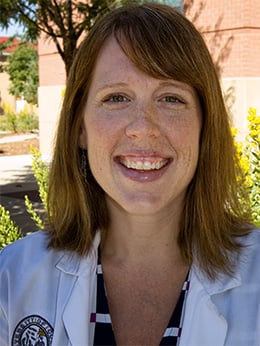Researchers at the University of Colorado Anschutz Medical Campus have found serious gaps in communication between physicians and home health care agencies (HHC) responsible for caring for often elderly patients discharged from hospitals. The problem, the study said, can contribute to hospital readmissions.
The research, published today in the Journal of General Internal Medicine, cites an array of communication challenges between HHC agencies and physicians following hospital discharge.
The study cited frequent discrepancies in medication lists, confusion over who was responsible to write patient care orders, inaccessible hospital records and resistance from clinicians and staff for accountability.
Led by Christine D. Jones, MD, MS, assistant professor at the University of Colorado School of Medicine, the researchers conducted six focus groups with HHC nurses from six different agencies in Colorado to ask about their general experience with caring for patients after discharge from any of their referring hospitals.
“We found that communication breakdowns can have consequences for patients,” said Jones, lead author of the study. “These are some of our most fragile patients, most are over 65, and more seamless communication is needed.”
Some of the HHC nurses interviewed complained of a lack of accountability, medical errors and difficulty in reaching doctors.
“As a general rule, I’ve been told you’re not to contact the hospitals. I actually got in trouble for contacting the hospital, trying to find out, get more information, trying to track a doctor down,” one nurse said in a focus group.
Another nurse said even if they reach a primary care physician, they often say they didn’t know the patient was in the hospital and they don’t have a report on them.
“The communication between the hospital and the primary care providers is just as bad as it is for us because the PCP’s don’t have the information,” the nurse said.
Dr. Jones said another complicating factor is that insurance often requires doctors to order HHC services. So if a nurse practitioner is providing primary care for a patient, obtaining HHC immediately becomes more difficult.
The researchers found another serious problem when it came to ordering medication. HHC nurses and staff said most of the medication lists they receive are incorrect due to the number of doctors and specialties involved.
“As hospitalists, we need to think about what happens beyond the hospital walls and how we can support our patients after discharge, especially when it comes to home health care patients who can be very vulnerable.” Jones said.
She noted that the study did not focus on any one specific hospital, but hospitals in general.
The study proposes a series of solutions to these problems including the following:
- Hospitals and primary care physicians could provide HHC agencies direct access to Electronic Medical Records and direct phone lines to doctors.
- Enact laws allowing nurse practitioners and physician’s assistants to write HHC orders. A bill was under consideration to do this but was not acted upon by Congress.
- Clearly establishing accountability for hospital clinicians to manage HHC orders until a primary care physician can see a patient and help HHC nurses with questions.
- Create better communication methods with PCPs to ensure safer transitions
“Our findings suggest that improvements to accountability and communication could address patient needs and goals, avoid medication discrepancies and ultimately improve safety for patients and HHC nurses,” Dr. Jones said.





